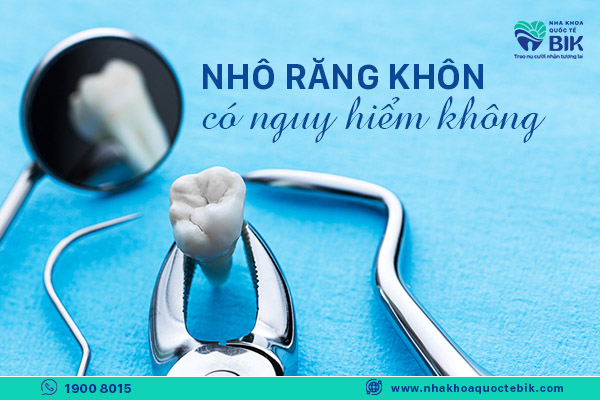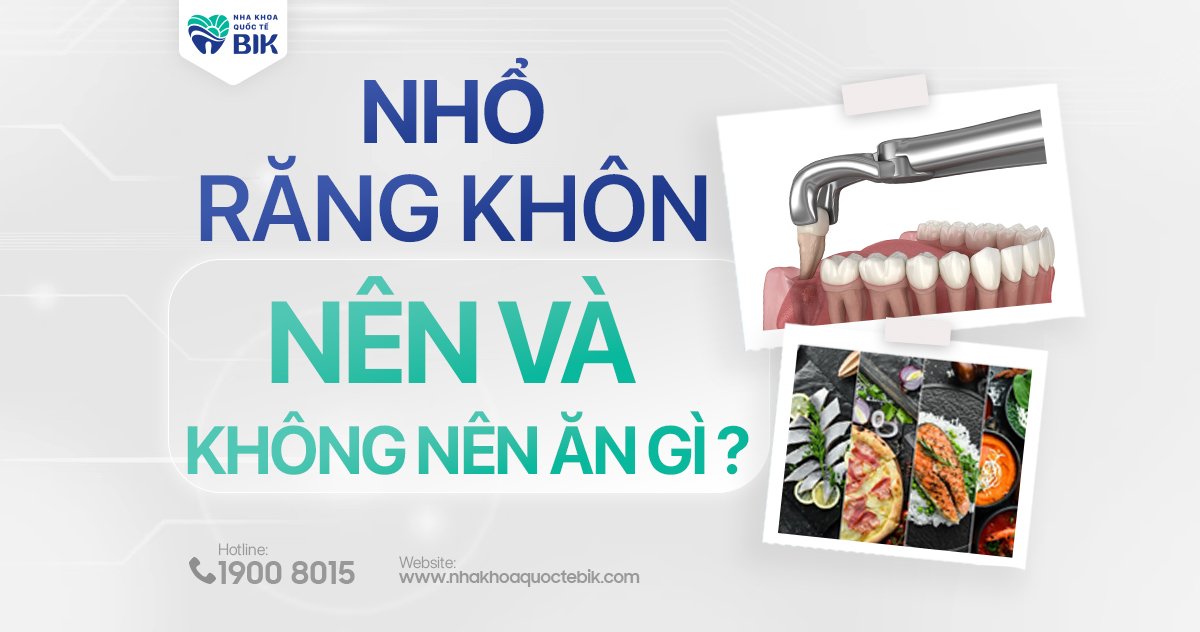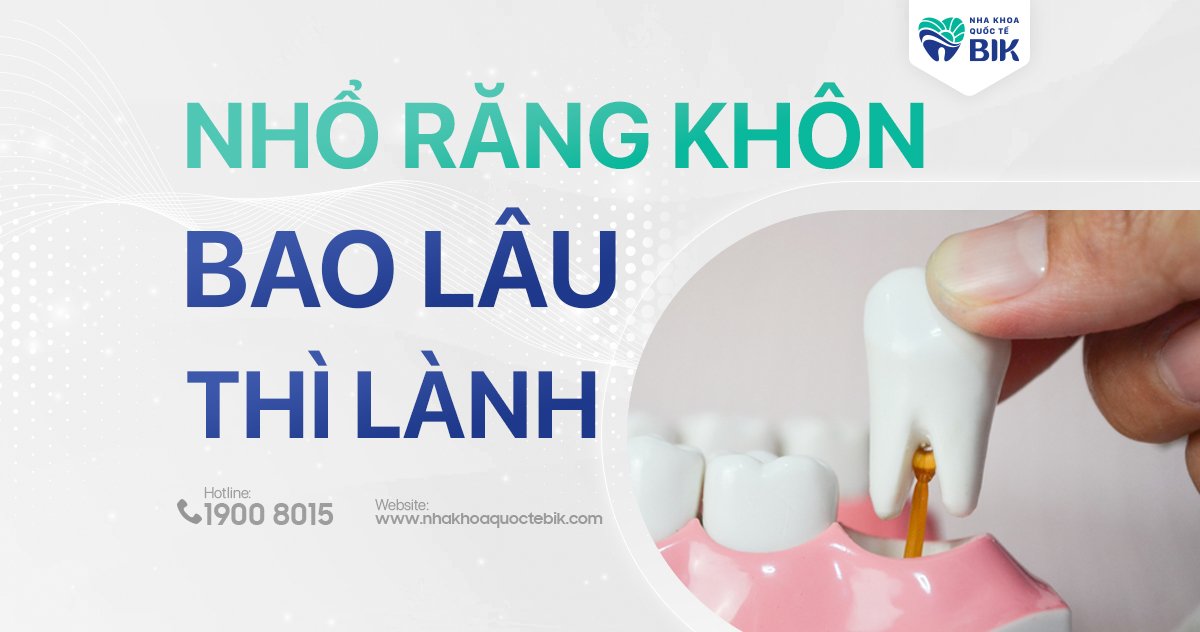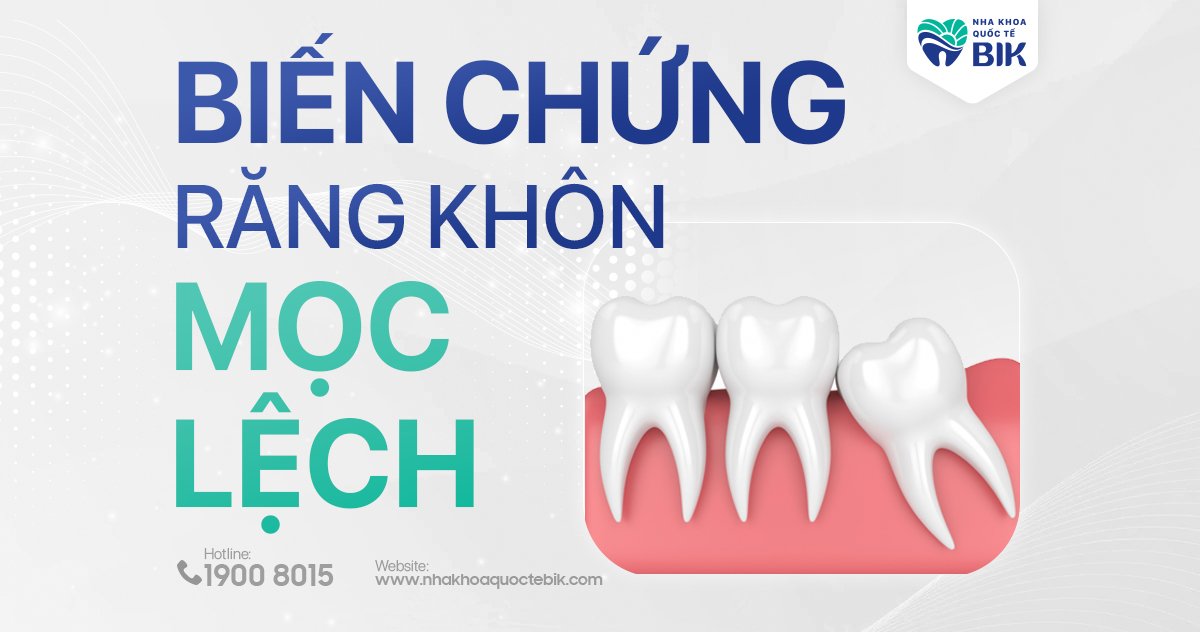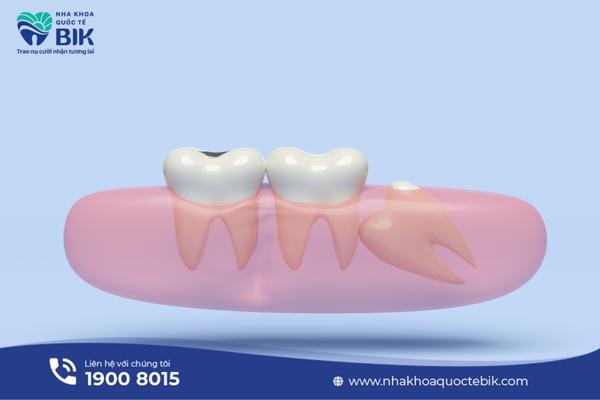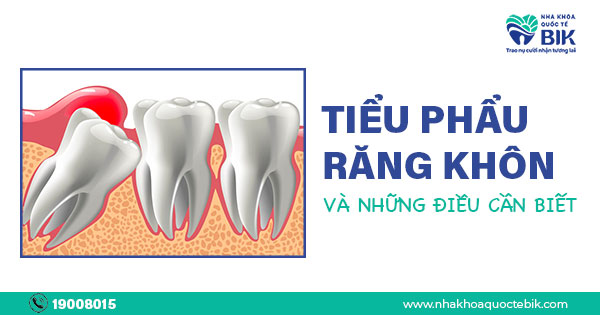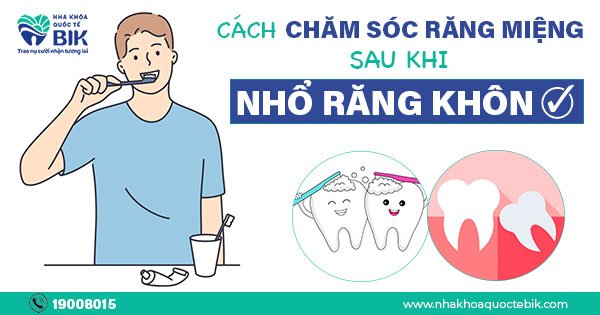Tooth extraction is a treatment method when the damaged teeth cannot be saved. Tooth extraction is often painful and uncomfortable. Sometimes, it can be dangerous if the wound becomes infected. In this article, let’s learn with BIK International Dental Clinic about 12 signs of infection after tooth extraction and how to handle it promptly!
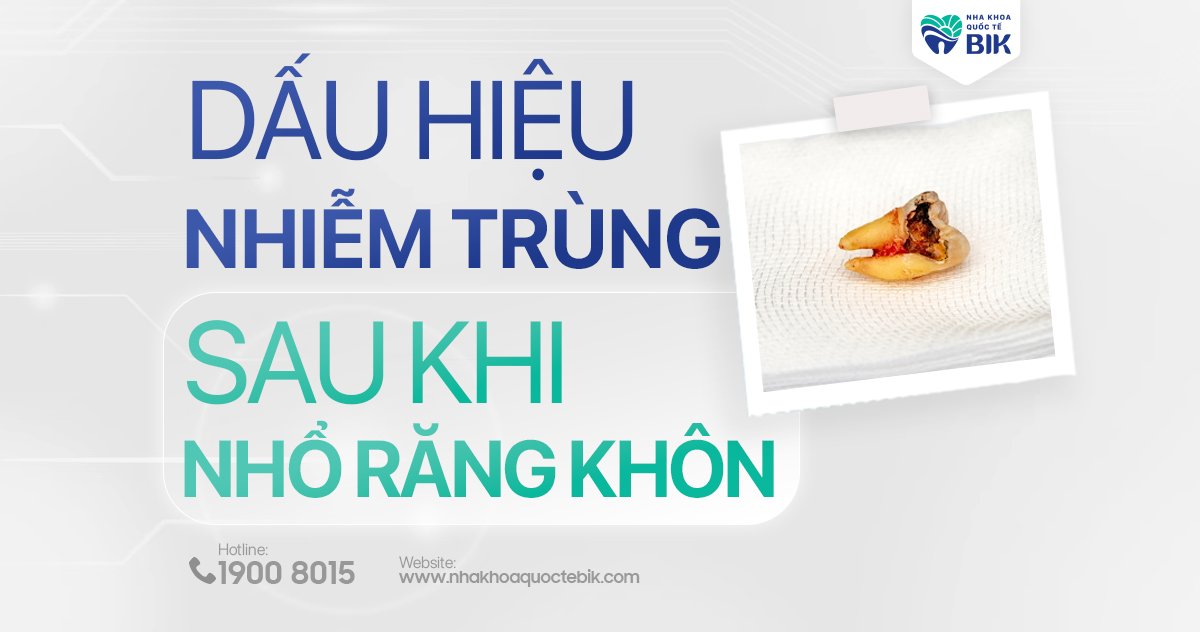
What is infection after tooth extraction?
Tooth extraction is a method to treat damaged teeth when they cannot be saved. Tooth extraction is often painful and uncomfortable. Sometimes, this can be dangerous if the wound becomes infected. In this article, let’s learn about 12 signs of infection after tooth extraction and how to handle it promptly with BIK International Dental Clinic!
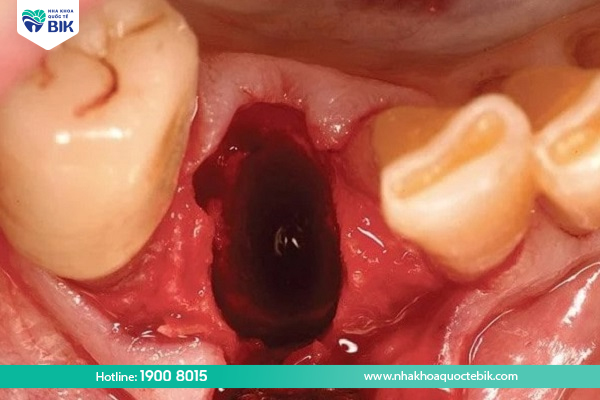
Causes of infection after tooth extraction
Causes of infection after tooth extraction often include:
- Teeth located deep in the gums can damage the gums, creating conditions for bacteria to enter the wound.
- Improper oral hygiene after tooth extraction leads to bacterial growth because food and plaque are not completely removed.
- Smoking after tooth extraction can cause infection because cigarette smoke comes into contact with the wound and reduces blood circulation.
- Using instruments that have not been thoroughly sterilized can transmit bacteria from the instruments to the wound.
- Not properly suturing the wound after tooth extraction also creates conditions for bacteria to grow and cause inflammation.
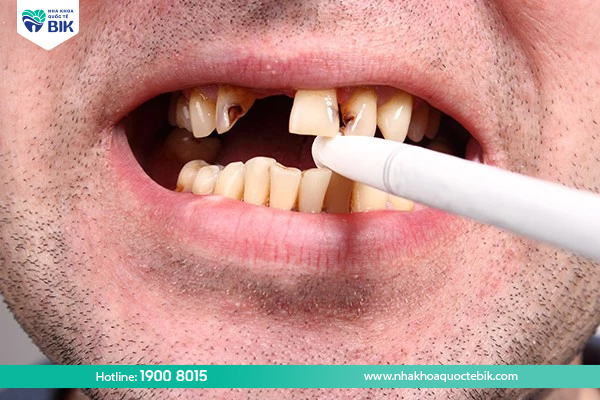
12 signs of infection after tooth extraction
Here are 12 symptoms of infection after tooth extraction that you need to know:
Pain does not decrease
Pain after tooth extraction is common and will usually decrease after a few days, then completely disappear after a few weeks. However, if the pain does not decrease and persists over time, you may have a wound infection.
Swollen face, swollen cheeks
After tooth extraction, especially wisdom tooth extraction, swelling of the face and swollen cheeks is completely normal. This condition usually only lasts for a few days and then gradually subsides. If the swelling of the face or cheeks does not subside or there are severe symptoms such as pain or fever, it may be a sign of infection after tooth extraction.
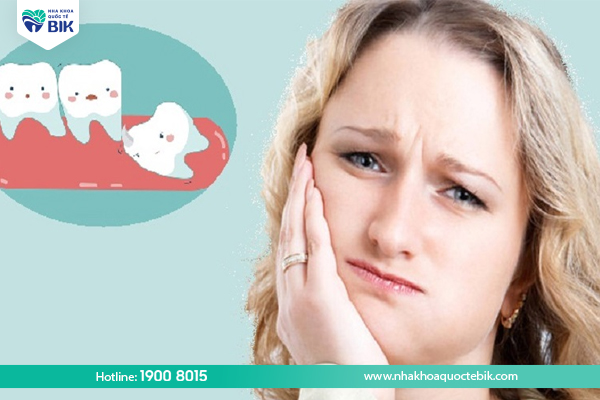
Difficulty breathing, difficulty swallowing food
One of the signs that a tooth extraction is infected is difficulty breathing or difficulty swallowing food. The cause of this problem is due to inflammation at the extraction site, leading to swelling of the surrounding gums. This can put pressure on the respiratory system and affect the ability to chew.
Excessive bleeding at the extraction site
After tooth extraction, prolonged bleeding may occur. This is due to damage to the gum mucosa and blood vessels. After about 40 minutes to 1 hour, the bleeding will stop on its own. If this condition persists for 1-2 days, it may be a sign of infection after tooth extraction.
Swollen, red gums
After tooth extraction, you will feel pain and discomfort in the area of the new tooth wound. This pain usually lasts for a week or more, depending on the dentist’s skills. If the pain does not subside and the gums are swollen and edematous, it may be due to infection.
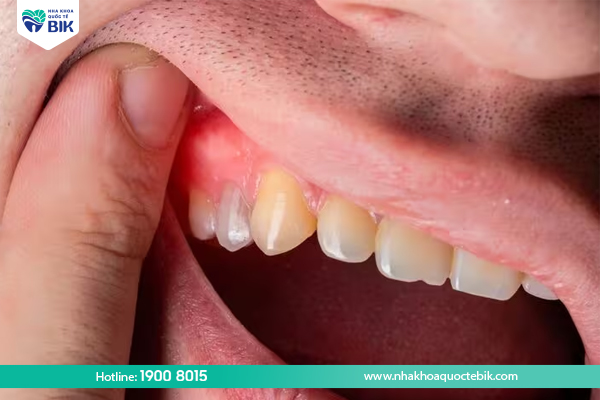
Bad breath, taste in mouth
Bad breath after tooth extraction occurs when the patient does not take care of and clean their teeth properly, leading to common infections with symptoms such as pain, swelling, and pus.
Feeling numb
Feeling numb after tooth extraction is completely normal. If you know how to take care of and clean your teeth, this feeling will gradually decrease after 1-3 days. However, if after 1 week or longer the feeling of soreness persists, it may be a sign of infection after tooth extraction.
Pus appears
The process of eating and drinking causes food to get stuck in the crevices on the gums, creating conditions for bacteria to grow. If not cleaned properly, they can cause infection. When this happens, the gums will swell or white pus will appear on the gums. This is also a sign of bacteria causing infection after tooth extraction.
Pain when opening or closing the mouth
Pain when opening or closing the mouth is one of the signs that the tooth extraction site is infected. The cause of this condition is often due to the wound not being cleaned thoroughly. This can lead to inflammation, swelling in the face, pain in the jawbone near the ear or difficulty opening and closing the mouth.
Fever within 1 week
People with poor health often have fever after tooth extraction. However, this condition will quickly go away after 1-2 days. If the fever lasts more than 1 week, there is a high possibility that you have an infection. The reason is that the remaining tooth root after extraction hinders the healing process.

Swollen lymph nodes – a sign of infection after tooth extraction
As mentioned, having a fever after tooth extraction is not common. However, if the fever persists with swelling in the jaw area, it may be a sign of infection after tooth extraction. At that time, your tooth extraction site has become infected.
The area next to the tooth is more sensitive
If after tooth extraction, the area is infected, the surrounding teeth will become more sensitive. In particular, when the tooth comes into contact with hot or cold food, it will easily ache. This is a common symptom, but sometimes it can also be a sign of bacteria after tooth extraction that you need to pay attention to.
How to deal with infected tooth extraction
Here are some measures to deal with infection after tooth extraction that you can refer to:
Applying ice to reduce pain
Applying ice is a useful method to reduce infection after tooth extraction. This method helps the capillaries contract, reduces bleeding and soothes the pain caused by inflammation.
Gently rinse your mouth with salt water
Using salt water solution helps remove bacteria in the mouth and disinfects the wound after tooth extraction. To protect your oral health, you can mix salt water with warm water and rinse your mouth about 2 times a day after tooth extraction.

Pay attention to proper oral hygiene
In addition to using salt water to rinse your mouth, patients also need to pay attention to oral hygiene. Remember to brush your teeth at least twice a day as instructed by your doctor. You can also use dental floss to remove excess food particles, prevent bacteria from entering the oral cavity and avoid damaging the gums and teeth.
Use antibiotics
If there are signs of infection after tooth extraction that persist without improvement, the patient should go to the dentist for examination and prescription of antibiotics and pain relievers. If the infection is pus-filled, the doctor will have to perform surgery to treat it.
Apply dental gel to reduce swelling and pain
Using dental gel helps reduce pain and improve the wound after tooth extraction that is infected. However, to ensure safety and effectiveness, you should consult your dentist before using this product for infections.
Adjust your diet
One way to treat infections after tooth extraction that you can do is to eat soft, easy-to-swallow foods such as porridge, soup, and milk. Avoid eating foods that are too hard or too chewy to avoid damaging the wound after tooth extraction. In addition, within the first week after tooth extraction, limit eating spicy, too cold, sour or salty foods, and reduce drinking beer and alcohol.

Go to a reputable dentist for examination and treatment
To prevent the infection from spreading to other areas of the mouth, visit a dentist as soon as possible. The dentist will examine your oral health and determine the cause of the symptoms. The dentist will then develop a suitable treatment plan to eliminate the infection and effectively protect your teeth.
How to prevent infection after tooth extraction
To prevent infection after tooth extraction, you need to note the following:
Choose a reputable dental facility:
Choosing a reliable dental facility is very important, you should choose reputable hospitals, doctors with high professional skills and facilities that take good care of patients after tooth extraction.
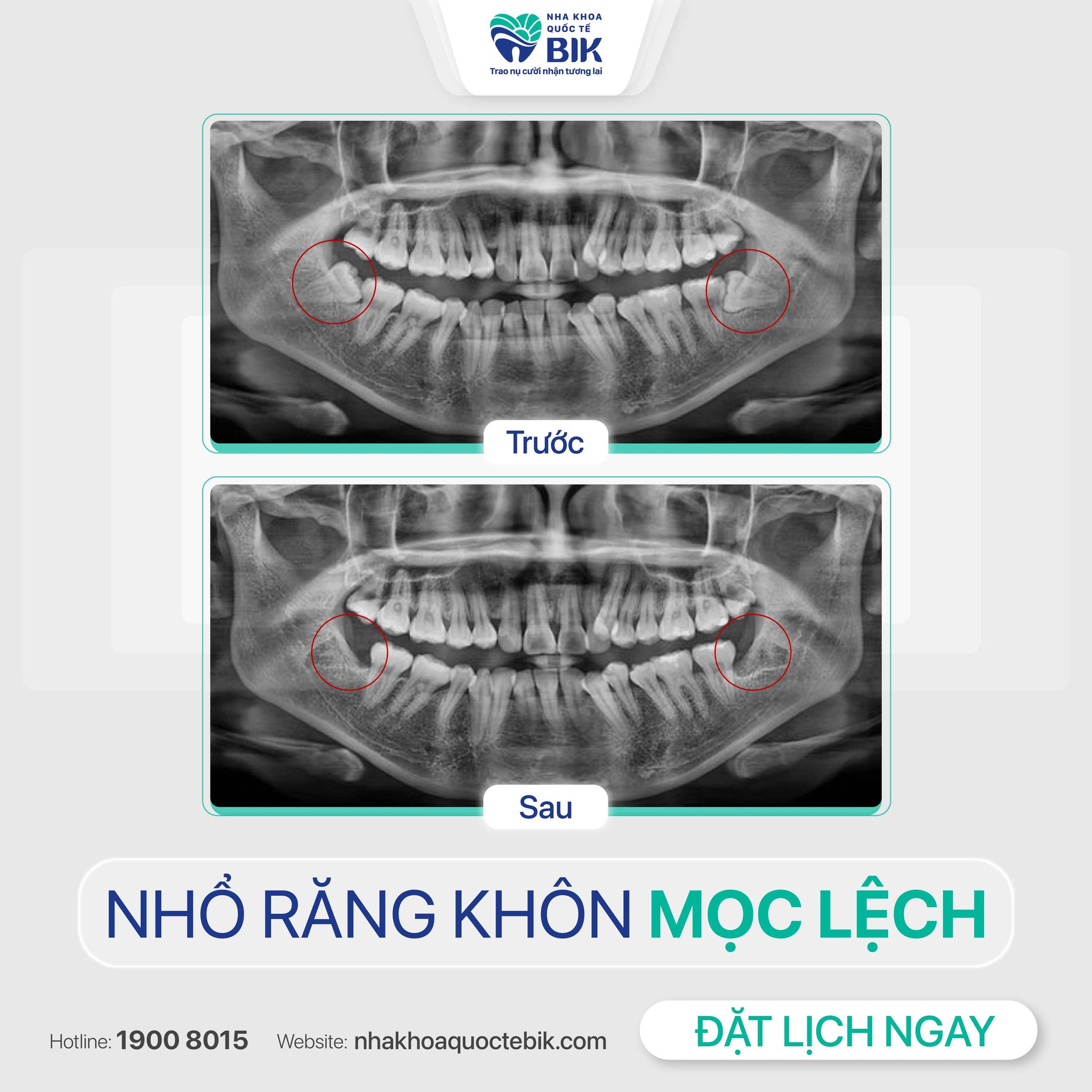
Proper oral hygiene:
Brush your teeth properly and gently, clean your teeth at least twice a day, use an interdental brush or dental floss to completely remove bacteria and plaque. You should use specialized toothpaste and mouthwash before and after dental surgery.
Use medication as prescribed by your doctor:
To avoid infection after tooth extraction, it is important to follow the correct time and instructions for taking medication as directed by your doctor. This is an important care to prevent infection.
Eat properly:
You need to supplement nutritious foods such as meat, fish, eggs, milk, vegetables and fruits to prevent bacteria from entering and support the wound healing process. You should prioritize soft and easy-to-digest foods.
Eliminate bad habits
You need to stop eating spicy and sour foods, drinking alcohol and smoking after tooth extraction to avoid sensitivity and damage to the stitches. At the same time, maintain a comfortable spirit to avoid grinding your teeth while sleeping and minimize damage.
Here is information about signs of infection after tooth extraction. If you have dental problems and want to find a reputable dental clinic to avoid post-surgical complications, contact BIK International Dental Clinic for detailed advice.

